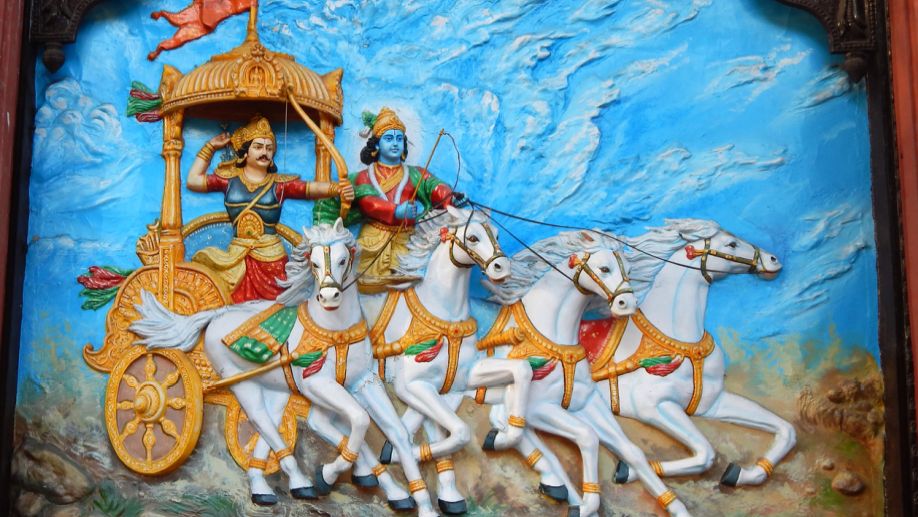Ethics are moral principles that govern the behaviour of a person and prove whether he or she is human in the truest sense. In spite of being more civilised as compared to ancient times, the ethos of epics seems to have much more morality than some of us. This article discusses one of the greatest epics in India; the Mahabharata and how its
characters teach us life lessons about humanity for a better future.
Debabrata, better known as Bhishma was the forefather of the Pandavas and the Kurus. During his life, he committed no sin except persuading Amba to marry Bichitrabirya. He declared himself to be a Bramhacharya, austerely left the crown and decided to devote his life for the well being of the king of Hastinapur. His actions proved that he was good and also showed us the value of respecting our elders.
Two other major characters in the Mahabharata, Arjun and Karna were undoubtedly towering personalities in war; but on taking a closer look, one would find that they too had many faults. Karna’s disloyal act with his ‘Guru’ Parasurama was a blunder for him that indirectly caused his death. But even from him, we can learn the value of loyalty and friendship as he never disregarded his fealty to Duryodhana and was always grateful to him.
The epic further evoked the demerits of the caste system. For example, even though Karna was brought up as a son of a charioteer, he proved himself to be a capable warrior. The epic also teaches us to not expose our Achilles heel which can be taken advantage of by others. Like Yudhisthira, though not adept at playing was defeated because he was a compulsive gambler, and this flaw was taken advantage by his cousins.
The win of the Pandavas emphasises the importance of the proverb ‘unity is strength’ because that was the cause of their victory. Duryodhana and his brothers teach us to be obedient to elders and the character of Dhritarashtra reflects that we must raise children in the right manner. Draupadi’s insult in open court ensured the destruction of Kuru lineage because all the elders present there remained silent. This shows us that, silence is not always gold. Kunti’s inner anguish over Karna reminds us that no one can sleep well after having committed a sin.
Shakuni is like a negative political character, which entered the realm of his foe as a needle, and came out as a sword destroying it. At the start of Kurukshetra when Duryodhana and Arjun went to Krishna for support, Duryodhana asked for Krishna’s Narayani Sena, while Arjun wanted only Krishna. This incident teaches us to choose quality in lieu of quantity. Nothing but jealousy was the cause of all evils then, and so it is even now.
Though everything depends on Niyati (fate), one should not give in to destiny. According to Krishna, a person’s fate depends on him. Even though the Pandavas were victorious, they could not rejoice as they had lost their elders, brothers and children in the fight.
That is the last teaching of the Mahabharata that nobody can enjoy fruits obtained by destruction. We obviously need to be modern and civilised, but if we obey the teachings, moral values and ethics that have been prescribed over centuries, only then the real essence of life can be enjoyed.
(Coordinator, Class VIII, Bongaon High School)











